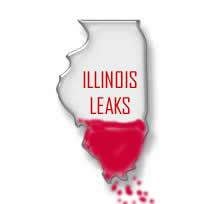Although three years old, it’s clear this needs re-published as we still have public bodies that just don’t get it!
First published February 14th, 2015
Edgar Co. (ECWd) –
Having attended more public meetings than I can keep track of, there is one issue that keeps rearing its ugly head. Ugly because each and every time we hear of the situation to be explained in this article, it is typically because of a dictatorial type public official who is on a mission to control everything. College of DuPage would be the most recent example of this!
The Open Meetings Act allows public bodies to go into closed session. Specifically, it states that they “may” go into closed session for numerous issues of which the statute spells out.(Illinois OMA statute)
As we have said time and time again, public bodies only have the power granted to them by law. The very fact that public bodies “may” go into closed session tells us that it is not a requirement.
Logic would tell you that since it is not a requirement, then what goes on in closed session is not private.
Recently the out of control COD Chairman Erin Birt, who just happens to be an attorney, insinuated the certain things were leaked to the public.
What constitutes “leaked”? Are we to understand from Chairman Birt that matters discussed in closed session are not allowed to be shared with the public?
As we have said for years, a public official can come out of a closed session and share everything that went on in that meeting with anyone they wish.
Don’t take our word for it! Read what the Illinois Appellate court’s position on this is.
“There is nothing in the Act that provides a cause of action against a public body for disclosing information from a closed meeting.” (read page 9, paragraph 609 of this Illinois Appellate Case)
“There is no provision in the constitution or the Open Meetings Act which expressly authorizes public bodies to sanction their members for revealing what went on during a closed meeting, and there is clearly no constitutional provision from which one may imply such powers.” (Click here for AG Opinion- see page 3)
So one must ask, if a couple of hillbillies from the fields of East Central Illinois can figure this fact out, why is it that State’s Attorney’s across this state and high dollar attorneys representing colleges can’t get this one straight?
Any board member that wishes to disclose the information from a closed meeting may do so and there is NOTHING in the open meetings act that provides a cause of action against you!
*There are certain limited exceptions to this contained within other laws, mainly FERPA (student records) and HIPAA (health records).








4 Comments
Joe Tirio
Posted at 20:29h, 07 FebruaryWho says “You can’t fight city hall?”… Typically, its City Hall!
Thanks Gents! Good stuff as usual.
Warren J. Le Fever
Posted at 16:09h, 05 FebruaryI remember this article and nothing has changed in the law since. It’s simply that lying officials who do not want wrongdoing on their part disclosed and the lie is a control statement that is false. The questions always to ask are: 1. Who says? and 2. By what authority? Back before the Watchdogs came along, this method of silence was used regularly in local governments all over Clark County. I know because I experienced it.
Dave
Posted at 15:37h, 14 FebruaryThey have been running that bluff so long that now they even believe the public has no right to know what goes on in closed sessions
Kirk Allen
Posted at 17:27h, 14 FebruaryAnd our goal is to educate the public on the truth!